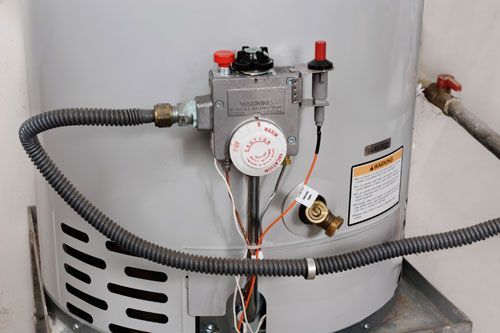Common Water Heater Problems and Solutions
Having a reliable water heater is essential for a comfortable home, providing hot water for showers, washing dishes, and more. However, water heaters can develop problems over time, affecting their performance and efficiency. This article identifies common water heater problems and offers practical solutions to keep your water heater functioning optimally.
Signs Your Water Heater Needs Attention
Insufficient Hot Water
If your water heater isn't providing enough hot water, it could be due to sediment buildup, a faulty thermostat, or an undersized unit for your household needs.
Strange Noises
Strange noises, such as popping or rumbling sounds, often indicate sediment buildup at the bottom of the tank, causing the water heater to overheat.
Rusty or Discolored Water
Rusty or discolored water is a sign of corrosion inside the water heater tank or the pipes connected to it, which can lead to leaks and water damage.
Leaking Water Heater
Leaks around the water heater can result from loose connections, a faulty pressure relief valve, or corrosion. Immediate attention is necessary to prevent water damage.
High Energy Bills
A sudden increase in energy bills may indicate that your water heater is working inefficiently due to issues like sediment buildup, a malfunctioning thermostat, or failing heating elements.
Common Water Heater Problems
Sediment Buildup
Sediment buildup occurs when minerals in the water settle at the bottom of the tank. This can reduce heating efficiency and cause noises. To fix this, flush the water heater regularly and consider using water softeners.
Faulty Thermostat
A faulty thermostat can cause inconsistent water temperatures or no hot water at all. Adjusting or replacing the thermostat can resolve these issues.
Pilot Light Issues
Pilot light problems can result from drafts, dirt buildup, or a faulty thermocouple. Relight the pilot, check for drafts, and replace the thermocouple if necessary.
Heating Element Failure
Heating elements can fail due to wear and tear, leading to insufficient hot water. Test the heating element and replace it if it's not working properly.
Pressure Relief Valve Problems
A malfunctioning pressure relief valve can cause leaks and high water pressure. Test the valve and replace it if it's not functioning correctly.
Leaks
Leaks can be caused by corrosion, loose connections, or damaged components. Tighten connections, replace faulty parts, and address corrosion to prevent further issues.
Corrosion
Corrosion inside the tank or on the tank itself can lead to rusty water and leaks. Replace the anode rod, treat the water supply, and replace the tank if necessary.
Thermal Expansion
Thermal expansion can cause the pressure relief valve to drip and create unusual noises. Install an expansion tank and adjust the water pressure to solve this problem.

Preventive Maintenance Tips
Regularly Flushing the Tank
Flushing the tank periodically helps remove sediment buildup, improving efficiency and extending the lifespan of the water heater.
Checking and Replacing the Anode Rod
The anode rod prevents corrosion inside the tank. Check it regularly and replace it as needed to protect your water heater.
Inspecting and Adjusting the Thermostat
Ensure the thermostat is set correctly and functioning properly to maintain consistent water temperatures and efficiency.
Scheduling Professional Maintenance
Regular professional maintenance can identify potential issues early and keep your water heater running smoothly.
When to Call a Professional
For complex repairs, persistent issues despite DIY efforts, or signs of serious damage or safety concerns, it's best to call a professional plumber.
Signs Your Water Heater Might Need a Replacement!
Conclusion
Regular maintenance and timely attention to common water heater problems can keep your unit running efficiently and prolong its lifespan. For more serious issues, don't hesitate to seek professional help to ensure your water heater remains in good working condition.











